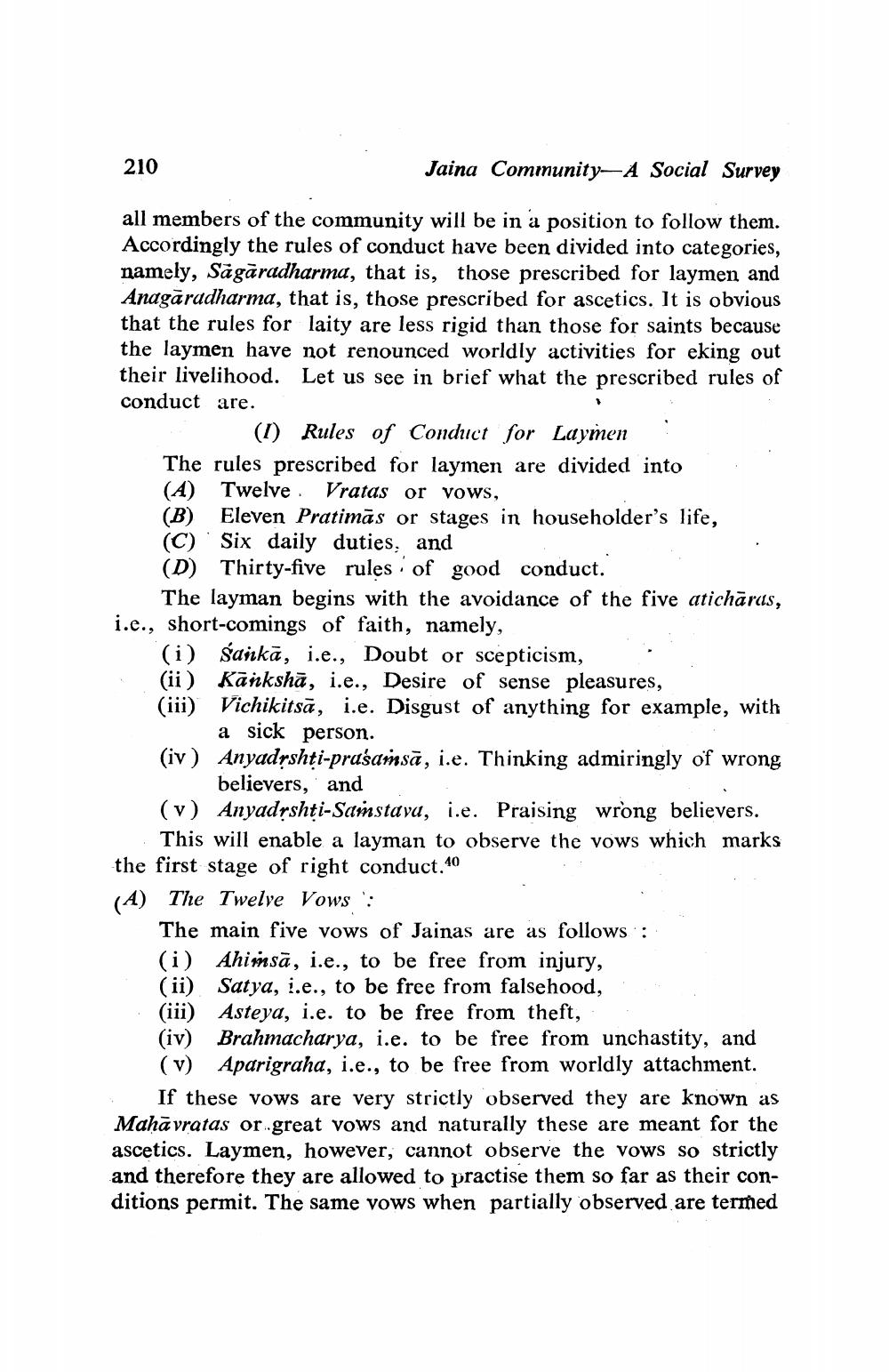________________
210
Jaina Community~A Social Survey
all members of the community will be in a position to follow them. Accordingly the rules of conduct have been divided into categories, namely, Sāgāradharma, that is, those prescribed for laymen and Anagā radharma, that is, those prescribed for ascetics. It is obvious that the rules for laity are less rigid than those for saints because the laymen have not renounced worldly activities for eking out their livelihood. Let us see in brief what the prescribed rules of conduct are.
(1) Rules of Conduct for Laymen The rules prescribed for laymen are divided into (A) Twelve. Vratas or vows, (B) Eleven Pratimās or stages in householder's life,
C). Six daily duties, and (D) Thirty-five rules of good conduct.
The layman begins with the avoidance of the five atichārus, i.e., short-comings of faith, namely,
(i) sankā, i.e., Doubt or scepticism, (ii) Kankshā, i.e., Desire of sense pleasures, (iii) Vichikitsā, i.e. Disgust of anything for example, with
a sick person. (iv) Anyadrshți-prašamsā, i.e. Thinking admiringly of wrong
believers, and (v) Anyadrshti-Samstava, i.e. Praising wrong believers.
This will enable a layman to observe the vows which marks the first stage of right conduct.40 (A) The Twelve Vows :
The main five vows of Jainas are as follows :: (i) Ahimsā, i.e., to be free from injury,
ii) Satya, i.e., to be free from falsehood, (iii) Asteya, i.e. to be free from theft, (iv) Brahmacharya, i.e. to be free from unchastity, and (v) Aparigraha, i.e., to be free from worldly attachment.
If these vows are very strictly observed they are known as Mahā vratas or great vows and naturally these are meant for the ascetics. Laymen, however, cannot observe the vows so strictly and therefore they are allowed to practise them so far as their conditions permit. The same vows when partially observed are termed




